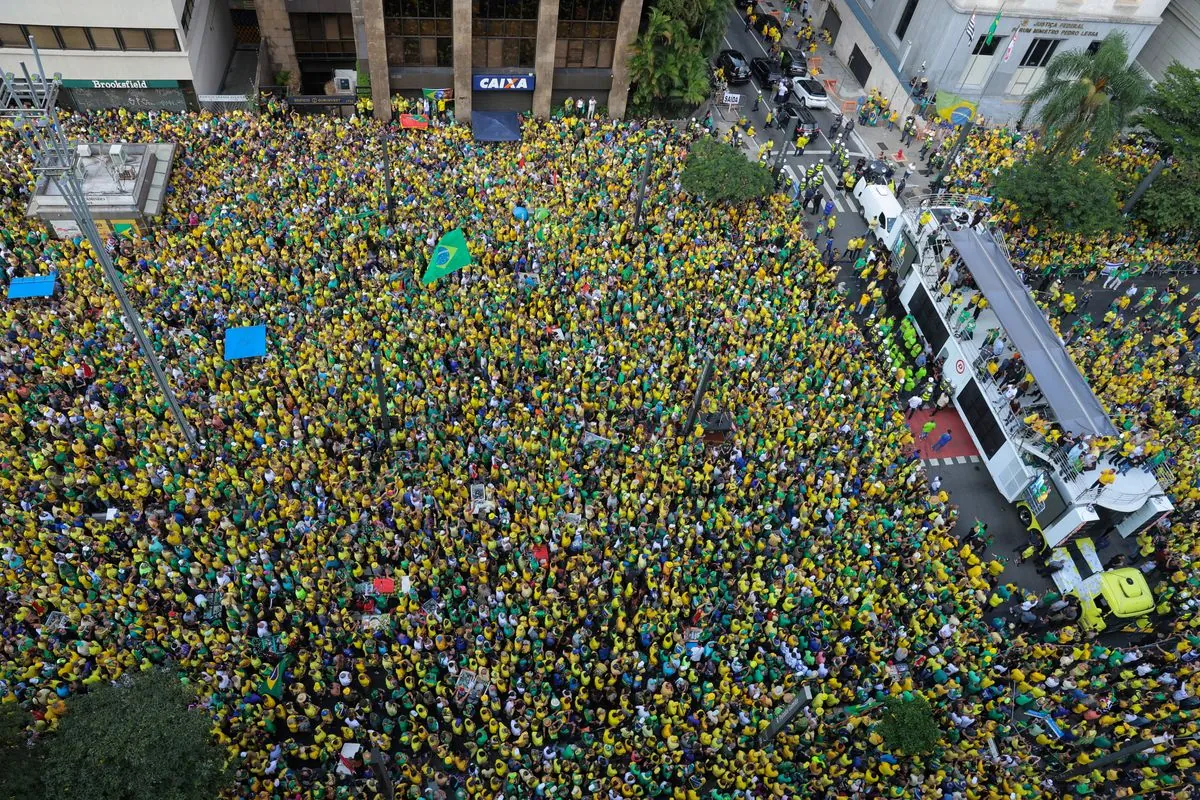On September 7, 2024, supporters of Jair Bolsonaro assembled on Sao Paulo's Avenida Paulista for an Independence Day demonstration. This event, occurring on Brazil's 202nd anniversary of independence from Portugal, served as a litmus test for the former president's ability to mobilize his base ahead of the October 2024 municipal elections.
The rally gained additional significance due to the recent nationwide ban of Elon Musk's X platform, formerly known as Twitter. This ban, implemented on August 30, 2024, by Supreme Court Justice Alexandre de Moraes, has become a focal point for Bolsonaro's supporters, who view it as evidence of political persecution.
Demonstrators, adorned in the yellow and green hues of Brazil's flag—colors symbolizing the nation's gold reserves and vast forests—carried banners expressing gratitude to Musk for his stance on free speech. The tech entrepreneur, who acquired the platform in October 2022 for $44 billion, has become an unexpected ally for Bolsonaro's supporters in their fight against what they perceive as censorship.
The ban on X stems from a prolonged conflict between Musk and Justice de Moraes regarding the limits of free expression. Since 2019, X has closed 226 accounts associated with far-right activities deemed harmful to Brazil's democracy. The platform's refusal to comply with certain court orders led to escalating tensions, culminating in the nationwide suspension.
Brazil's Supreme Federal Court, consisting of 11 justices appointed by the President, unanimously upheld de Moraes' decision to block X. This action has intensified the debate over free speech in Brazil, a country whose 1988 constitution is renowned for its extensive list of individual and collective rights.
Bia Kicis, a staunch Bolsonaro ally and lawmaker, expressed her view on the situation:
"Elon Musk has been a warrior for freedom of speech. The right is being oppressed, massacred, because the left doesn't want the right to exist."
The controversy surrounding X has reignited Brazil's deep-seated political polarization. While Bolsonaro's supporters see the ban as an infringement on their liberties, critics argue that it's a necessary measure to combat the spread of misinformation and protect democratic institutions.
This rally occurs against the backdrop of Bolsonaro's ongoing legal challenges. The former president, who left office in 2022, has been indicted twice and is currently under investigation for his potential role in the January 8, 2023 incident, when his supporters stormed Congress and the presidential palace.
As Brazil approaches its municipal elections, scheduled for October 2024, the country's multi-party system, with over 30 registered political parties, faces a critical test. The outcome of these elections may provide insight into the shifting political landscape of Latin America's largest economy and a key member of the BRICS group of emerging nations.
The rally in Sao Paulo, taking place on one of the city's most important thoroughfares, serves as a reminder of the ongoing tensions in Brazilian politics. As the nation continues to grapple with issues of free speech, political polarization, and the role of social media in democracy, the events unfolding on Avenida Paulista may well shape the course of Brazil's political future.
